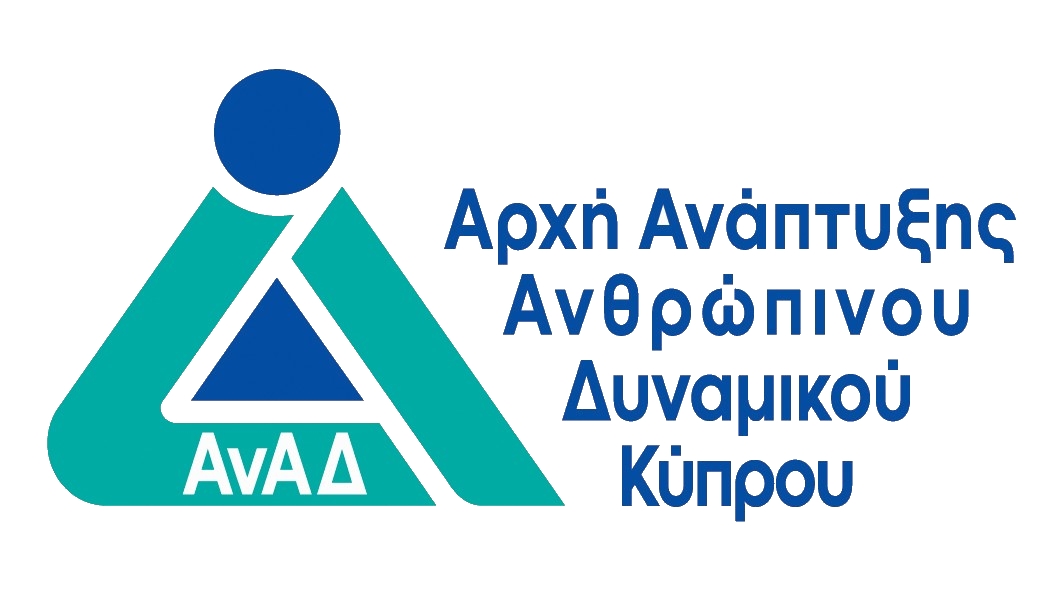
EIMF Certificate in Payroll Management
- Λογιστικά/ Έλεγχος/ Φορολογικά

ΠΕΡΙΓΡΑΦΗ
Course Overview
The efficient management of the payroll function is crucial for any business with multiple employees. It is an aspect that requires attention to detail and careful observation of the regulatory environment. The integration of the payroll function with the finance and human resource departments further contributes to the operational management of a successful organisation.
This programme offers a comprehensive understanding of the principles of payroll management and effective controls with a strong emphasis on practical application in the working environment. Whether you are seeking to manage these functions within your organisation or to diversify your skillset for career progression, this programme will provide you with the skills and knowledge needed to perform the vital function of payroll management and the effective implementation of controls.
You will find value by formalising and updating your skills and learning the most up-to-date processes and best practices involved in the payroll function.
Participants will develop the following competencies:
- Understanding the payroll regulatory and compliance environment
- Confidence in managing the payroll department
- Skills to identify risk and implement controls
- Ability to integrate the payroll division with the HR and Finance Department
ΣΚΟΠΟΣ ΣΕΜΙΝΑΡΙΟΥ
Training Objectives
- Explain the payroll function and its importance
- Explain the proper structure of an efficient and compliant payroll department
- Identify the different types of employees
- Define the objectives of the payroll team
- Explain the importance of developing a proper payroll procedures manual
- Identify the key steps in payroll activities
- Identify the relevant laws involving in the payroll function
- Differentiate between employees and service providers and their relevant treatment
- Identify the statutory reports that must be filed with the tax authorities
- Identify the internal reports the payroll function must generate for management
- Explain the employee’s remuneration and statutory deductions
- Identify and explain the benefits in kind
- Explain how payroll interacts with the accounting system and the associated record keeping, controls and measurements
- Identify and explain the controls that must be in place to safeguard the proper function of the payroll department
- Develop a properly structured and compliant payroll department
- Implement an efficient payroll procedures manual
- Maintain properly the employees’ records
- Effectively process the employees’ leave
- Comply with all the relevant employment laws and regulations
- Properly classify employees, differentiating employees and private contractors based on the common law rule
- Track employee time and differentiate between types of employee compensation
- Calculate the employees’ gross pay and benefits in kind
- Calculate and account for all required employee deductions associated with benefits and all required wage taxes
- Generate information and reports for internal and external use
- Plan, organize, implement, and monitor work within the payroll environment
- Assess the performance of internal and external payroll audits
- Integrate the payroll into the HR and finance departments
- Mitigate the risk and implement controls
- Justify the importance of computing the payroll taxes
- Assess the readiness of the organisation to apply the requirements of a compliant payroll department
- Recommend solutions to address the changes to the legislation
- Adopt a formal policy to be followed when addressing payroll requirements
- Justify the importance of the implementation of a compliant payroll department
- Justify the need of company to apply the requirements of the payroll laws and regulations
ΣΕ ΠΟΙΟΥΣ ΑΠΕΥΘΥΝΕΤΑΙ
- Payroll Administrators who wish to enhance their payroll knowledge and application
- Human Resource professionals who wish to gain a better understanding of the payroll system and how it is integrated into the corporate human resource environment
- Accountants who wish to diversify their skillset for career progression
- Payroll supervisors or managers
- Finance officers or managers who oversees the payroll function
ΠΕΡΙΣΣΟΤΕΡΕΣ ΠΛΗΡΟΦΟΡΙΕΣ
Training Outline
The payroll environment
- What is payroll?
- The payroll department
- The department structures
- Information flow
- Responsibility of the payroll administrator
- The different types of employees and contractors, and why confidentiality is incredibly important.
- Analysing the objectives of the payroll team
- Distinguishing payroll data categories and payment frequencies
Management Information Systems affecting the Payroll Function
- In-House payroll systems
- Outsourcing of payroll
- Interfaces to/from other systems
Business Communication in Payroll
- Communications
- Writing Letters
- Public Speaking
- Interviewing Techniques
Creating an effective payroll department
- How to effectively run payroll department / office
- Integration with company policies
- Creating a payroll procedures manual
- Payroll processes
- Year-end
- Payroll software
- Managing major change
- Security
- Company policies
Payroll Administration
- The key steps involved in payroll activities.
- Creating cost centres, pay points and job codes
- Maintaining employee data
- Processing leave
- Setting up payslips
- Capturing overtime and additional payment information
Working in a team
- Employing effective communication methods and conflict resolution
- Identifying formal and informal team structures and roles
- Examining principles of team management and objective setting
- Identifying principles of team development
Payroll Regulation
- Employment Relationship Law
- The Protection of Wages Law of 2007
- The Minimum Wage
- Hours of Employment Law (Cap 182)
- Working Time Directive (WTD)
- Maternity Leave – Maternity Protection Law
- Termination of employment Law
- Redundancy Law
- The Law of Pensions
- Data Protection Directive
- Acquired Rights Directive
- Other
Preparing Payroll
- Identify employees
- Employee classification
- Employee set-up
- Declaration of employment
- Payroll software
- Recording time worked
- Cost centers
- Pay points
Recording & Reporting Payroll
- Employee data
- Accounting payroll cost
- Recording payroll cost
- Payroll register
- Payroll reporting
Ascertaining gross pay
- Basis of Assessment
- Earnings Categories
- Overtime
- Remuneration report
- Classifying taxable pay elements
- Calculating pay apportionments correctly
- Employee Benefits
- Benefits in kind
- Scope of application
- Benefits related to the use of cars
- Use of saloon car belonging to the employer
- Benefits related accommodation and use of assets
- Other benefits
- Exemptions
- Other information
Processing deductions
- Ascertaining what makes a deduction from pay lawful
- Classifying the types of deductions
- Distinguishing deductions which affect taxable pay
Calculating Contributions
- Social insurance procedures and calculations
- Other contributions
- National Health Scheme (GESY)
- Procedures of payment of contributions
- Additional charges
- Occupational Pensions
- Provident fund
- Completing the required forms
Tax and Employee Payments
- Calculating income tax
- Identifying the different allowances available
- Awareness of circumstances where tax refunds may be processed
- Administering starters and leavers correctly
- Listing information required for processing starters & leavers
- Completing the required tax forms
Payroll Reporting
- Common Payroll Measurements and how they are used
- Contents of the various payroll reports and how to use them
- How to utilise payroll reports for problem solving
Effective Payroll Controls
- Protection of personal information
- What are internal controls?
- Identifying risks in the payroll cycle
- Implementation of payroll controls
- Evaluating payroll controls
- Outsourcing arrangements and responsibilities
- Common mistakes and how to avoid them
- Payroll and external audit procedures
Training Style
The programme is designed to deliver knowledge and enhance participants’ skills via short lectures, case-studies, practical example and real-life simulations. Participants will also benefit from customised feedback at the end of the programme and take away the knowledge gained to be transferred to their workplace. Most of the training’s time will be invested in analysing a real-life case study that will help participants understand how to solve problems in similar situations.
Πληροφορίες Εκπαιδευτή
Αναλυτικό Κόστος Σεμιναρίου
Για Δικαιούχους ΑνΑΔ
- € 650.00
- € 400.00
- € 0.00
- € 250.00
- € 250.00
Για μη-Δικαιούχους ΑνΑΔ
- € 650.00
- € 0.00
- € 123.50
- € 650.00
- € 773.50
 Ελληνικά
Ελληνικά  English
English



 Αγγλικά
Αγγλικά
 20 ώρες
(
5 μέρες
)
20 ώρες
(
5 μέρες
)


































